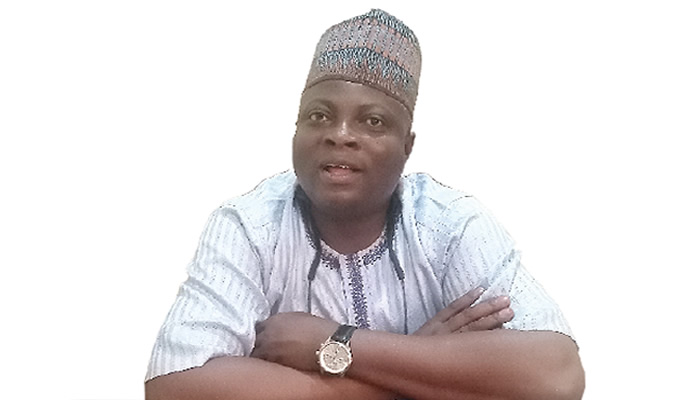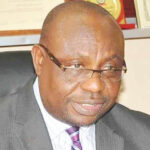
A medical officer in the Kwara State Civil Service, Dr Kazeem Lakadiri, who was rewarded with a car gift by the state government for his outstanding services, speaks to TUNDE OYEKOLA about his work
Tell us more about yourself.
I am from the Asa Local Government Area of Kwara State. I attended Offa Grammar School in the Offa Local Government Area of Kwara State and the University of Ilorin College of Medicine. I graduated in 2006 and after my house service training, I served in Kaduna State before I joined the Kwara State Civil Service in 2010 as a medical officer.
As a young civil servant, I was posted to the General Hospital, Oro, in the Irepodun Local Government Area of the state. I spent three months there before I was moved to Ajikobi Cottage Hospital, Ilorin. I want to believe that the success of today started from Ajikobi Cottage Hospital because when I got there, it was like a desert. My first six months were spent transforming the place to provide good medical services to the people and as God would have it, the entire community appreciated my efforts and that attracted many residents. I transformed a desert into a forest with so many trees and branches.
Were there others at the hospital?
When I was there, many young doctors, even colleagues, used to come around and learn from me and we did surgeries together. I was the only one around who knew how to carry out ultrasound scans at that time; so, the majority of them (other doctors) came to learn from me. I was happy doing the job. I was dedicated and I was in the hospital for almost 24 hours every day. At the end of my service, I stabilised the health system, reduced the maternal mortality rate in the area. I can count the number of pregnant mothers we lost during the six years of my service at the hospital, the loss was minimal and negligible. We used to have deliveries at that centre. At the end of the month, we used to record between 120 and 130 deliveries. When I was leaving the place, the community didn’t want me to go. They didn’t want to release me but I told them that I had to move to another centre because it was a government job and one could not remain in one place.
I was later posted to the Government House Clinic. I never knew that people were watching me. When I got to the clinic, it had only two rooms and I later discovered that 90 per cent of my patients back at Ajikobi Cottage Hospital were workers at the Government House. So, my new (work) station was like my old station; people embraced my work and they came for checkups. At a point, the then Permanent Secretary at the Government House, one Mr Adebiyi, who is now retired, said he didn’t want the clinic to be turned into a market due to its size. So, he then raised a memo that a big facility be built for me at the Government House and that was done.
What is your area of specialisation?
I am a general health practitioner.
When you got to Ajikobi Cottage Hospital, what did you think was missing there?
There were equipment and personnel at the hospital but the commitment from the workers was not there. The workers I met there were not dedicated but by the time I got there, I turned the place around. I believed that something could be done if I followed it to the next level. I don’t neglect my patients, I’m always by their side.
You were recognised as the best civil servant in the state. What do you think earned you that award?
Whatever I do, I like giving my best. I was given some tasks that I did well. There was an illegal camp in the Aboto area of the state. The camp was operated by a cleric and the victims of that camp were taken to the police in Ilorin and later to the pilgrims’ camp. I checked on them and treated them. I never knew that somebody was watching me until they compensated me. At the Government House clinic, a lot of government functionaries, including civil servants, and political appointees, used to visit this place and whenever they came, they were treated equally. Funnily enough, we offer free treatment at the clinic.
You spoke about an illegal camp earlier. What do you think led to its existence?
From what we gathered, some of them (victims) were neglected by their families who branded them as stubborn and recalcitrant children and some were there on account of drug abuse. Surprisingly, the majority of them were university graduates. They were rescued alive and rehabilitated.
Does the camp still exist?
I don’t think so because the government took over all the patients in the camp and it was disbanded. We reunited them with their families and we were paying follow-up visits to them.
Was the state award you got something you expected?
No, I never expected it. I witnessed one (of the state awards) about four years ago and this is the second one, which I won. I feel so happy because I least expected it.
How many civil servants received an award from the state government?
A few workers were recognised in the previous one but this (2022 award) is better. Ten workers were recognised in the one held four years ago but this time round, about 40 civil servants were recognised and were given awards. The worker that won the star prize four years ago works in the Ministry of Finance. He is a gentleman who listens to every complaint or request taken to him. He tries as much as possible to solve every problem taken to him. He’s never tired of solving people’s problems. I’m also never tired of attending to people. I can recall that there was a time when some people who travelled for an official assignment were involved in an accident. I had to leave my house in the middle of the night to attend to them and we took good care of them and they were back at their various homes.
You received a car gift from the state government. Did the civil servant who won the top award four years ago receive the same thing?
The star prize was also a car and there were a few other prizes. At the end of the day, God intervened, so that earned me an award. I also got an award in 2015 for outstanding commitment to service at the Kwara State Government House. I got another one from the state branch of the Nigerian Medical Association when I served as the secretary of the association. I have many other awards.
Do you think this type of award will really motivate other workers in the civil service?
Yes. When I got the award in 2015, I was encouraged to do more.
How did you feel when you were notified of your latest award?
It was a surprise to me and I felt embarrassed because I never expected it. I got a phone call overnight that I was one of those that would be recognised at the dinner and that I should come with my wife, kids, and possibly my friends. Surprisingly, I was one of the last two on the stage and my heart beat as if I ran for 200 kilometres. At one point, I asked myself whether I really deserved the award but at the end of the day, I feel happy that I was celebrated before a large crowd. I thank those who have been watching me and who nominated me for this award. To them, I promise that I will never relent in whatever I’m doing.
What kind of prize did you receive?
Let me say that the prize is luxurious because what you don’t expect or contribute to acquire is a luxury. I was presented with a brand new Hyundai Elantra saloon. The most important thing is that I was identified among so many people. I thank God for the recognition. It is bigger than what was given to the winner four years ago. What I got was an elegant car when compared with the one the winner got four years ago.
As a medical doctor working in the civil service, which areas in the health sector will you say require improvement?
I want to give kudos to the governor, Mallam Abdulrahman Abdulrazaq, because about 90 per cent of the medical facilities at the state and local government levels have been furnished with state-of-the-art equipment. In terms of equipment and facilities, the government has done very well. We know that the country has challenges with brain drain; people are moving out of the country. The government can do more by providing more allowances. We know there are limited resources available to the state governments, but they can do better to boost the morale of the workers at the state level and even at the federal level. State governments should be able to do something meaningful to improve the welfare package of workers so as not to lose them. I won the best civil servant of the year award and the second runner-up is also a medical doctor. That shows that people are committed and are willing to serve their fatherland.
I want to encourage my colleagues not to leave Nigeria because they can also make it in this country. If everyone moves out of the country, who will take care of our fathers, mothers, and other relatives? I want to tell them that it is not by moving out of the country that they can make it in life. There are opportunities in this country that can be explored. They can impact life here (in Nigeria) more than in foreign land. To those that travel abroad, they should not forget home. They should achieve whatever they want to achieve and come back home because home is home. In terms of staffing, I know the government is handicapped. I will still say that the government can do better in terms of hazard allowance and welfare packages for the workers.
Some health professionals still complain about inadequate equipment within our health facilities. Do you think this is also a factor responsible for the migration to developed countries?
In terms of facilities, the country is 75 per cent there. We are a third-world country, and we have to keep encouraging our government to bring in modern equipment. We should utilise the facilities that we have and do something impactful for the country. People do not leave the country because of inadequate equipment but for better welfare packages. In our society, people believe that as a medical doctor, you should be able to take care of about 10 members of your family.




